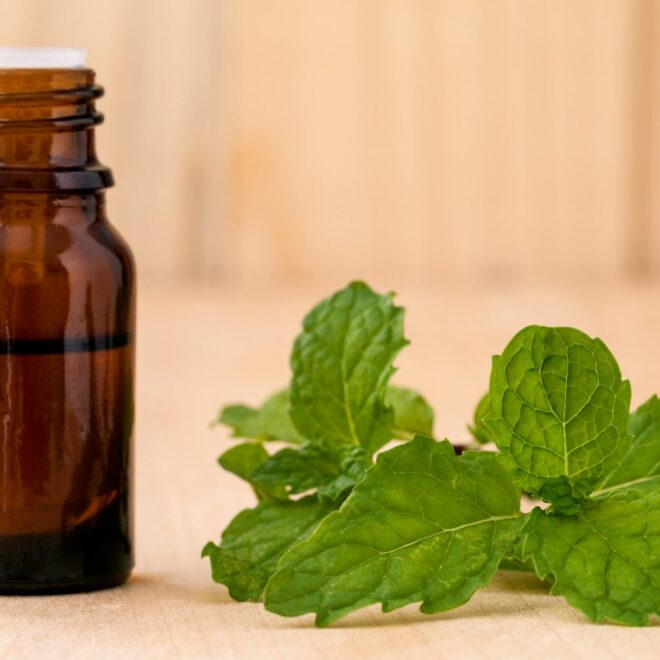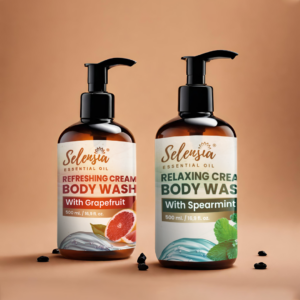Introduction
Patchouli oil has been treasured for centuries for its unique scent and diverse applications, including in perfumes and herbal medicine. Its oil, which is derived from the Pogostemon cablin plant, boasts a multitude of powerful uses. One of its deepest hidden and strongest attributes is its use as a natural insect repellent. With the increase in world concerns regarding chemical-based repellent, patchouli oil’s popularity is likely to grow. The insect repellent industry is expected to grow to 7.1 billion dollars by 2028, growing at 7.2% per year starting in 2021 (Data Bridge Market Research). Obviously, with the world economy becoming increasingly pro-environment and sustainable, interest in patchouli oil as a suitable source of this oil is bound to increase.
What is Patchouli Oil?
Patchouli oil is an essential oil extracted from the leaves of the Pogostemon cablin plant, native to Indonesia at Southeast Asia. The oil is obtained through steam distillation, where the leaves are carefully processed to release their potent aromatic compounds. Throughout history, patchouli oil has been cherished for its fragrance and therapeutic qualities. In ancient times, it was used in incense and traditional medicine for its calming and healing properties. During the 18th and 19th centuries, silk merchants employed patchouli leaves to protect fabrics from moths during transport to Europe. In the 1960s and 70s, patchouli oil became synonymous with the hippie movement, prized for its earthy scent and association with counterculture. Today, it continues to be valued for its versatile applications in perfumery, skincare, and even as a natural insect repellent.
How Patchouli Oil Acts as a Natural Insect Repellent
The appeal of patchouli oil as an insect repellent is linked to the presence of several compounds within the oil, with patchoulol being the most prominent, contributing about 30-40% of the total composition. This compound is significant both in the aroma and in the insect-repelling properties of the oil. Other important constituents include α-Bulnesene, α-Guaiene, and Seychellene, which are crucial for the overall effectiveness of the oil. They inhibit the function of olfactory receptors found in insects that are responsible for locating hosts. Patchouli oil is less well-known compared to some other natural repellents, but it outperforms them in effectiveness over a longer period. Citronella is famous and widely used, but unlike patchouli, its effectiveness tends to diminish quite quickly. Lemon eucalyptus oil, with PMD, provides mosquito protection as effectively as low doses of DEET. On the other hand, lavender oil is more effective against moths and some other insects but less effective against mosquitoes, while patchouli oil thus remains a strong contender among natural repellents.
How Patchouli Oil Acts as a Natural Insect Repellent

Mechanism of Action
- Odor Masking:
The strong scent of patchouli oil works effectively to mask the human odor, yielding a more favorable outcome for those using the oil. This odor masking feature is crucial for its repellent function. - Repellent Properties:
Some elements of patchouli oil can cause disruption or irritation to certain insects, leading them to avoid areas where the oil is present. These elements act as a form of pest control. - Dose-Dependent Neurotoxicity:
Some studies suggest that at certain doses, various components of patchouli oil may have neurotoxic effects on insects. These effects can further damage their already impaired nervous system, preventing them from approaching or feeding altogether.
Species Repelled by Patchouli Oil
- Mosquitoes:
Patchouli oil is highly effective against Aedes aegypti (yellow fever mosquito) and Anopheles species, which are commonly known as malaria mosquitoes. A recent article published in the Journal of Medical Entomology highlighted the significant potential of patchouli oil as a mosquito repellent, allowing greater tolerance against Anopheles mosquitoes. - Fleas:
This oil can serve as a natural repellent, useful for pets and humans, as it prevents fleas from finding a new host. - Head Lice:
Evidence for patchouli oil’s effectiveness against head lice is limited, but anecdotal evidence suggests it may help, making it a potential natural solution for this issue. - Moths:
Like many other herbs, patchouli oil acts as a moth repellent and has long been used to protect fabrics. - Ants:
Some reports indicate that patchouli oil is effective against certain ant species, functioning as a natural insect repellent.
Supporting Evidence/Studies
As reported in the Journal of Vector Ecology, patchouli oil exhibited significant repellent activity against mosquitoes. The Journal of Economic Entomology also noted the effectiveness of patchouli oil in pest control, particularly against various insects.
How to Use Patchouli Oil as an Insect Repellent
DIY Recipes
- Patchouli Oil Spray: Create your own insect repellent spray by mixing 10-15 drops of patchouli oil with 2 ounces of water in a spray bottle. Shake well before each use to ensure the oil is properly mixed. You can spray it on clothing, furniture, or areas where insects are a problem.
- Diffusing: To create an insect-free environment, add 5-10 drops of patchouli oil to a diffuser. Diffusing the oil in a room can help repel insects like mosquitoes and moths, while also creating a calming atmosphere.
- Lotion/Carrier Oil Blend: For a topical solution, mix 5-10 drops of patchouli oil per ounce of carrier oil (e.g., coconut, jojoba, or almond oil). Apply it to exposed skin areas to keep insects at bay. This blend can also serve as a moisturizing lotion.
Tips for Safe Application
- Patch Test: Always perform a patch test on a small area of skin before applying the oil more widely. This helps ensure you don’t experience any allergic reactions or irritation.
- Avoid Sensitive Areas: Avoid contact with your eyes and mucous membranes (nose, mouth, etc.). If the oil gets into these areas, rinse thoroughly with water.
- Discontinue Use if Irritation Occurs: If you experience any irritation, redness, or discomfort after applying patchouli oil, discontinue use immediately and wash the area with soap and water.
Recommended Dilution Ratios for Topical Use
- Adults : A 1-3% dilution is generally recommended for adults when applying patchouli oil topically. This translates to 1-3 drops of patchouli oil per teaspoon of carrier oil.
- Children : For children, it’s advisable to consult with a qualified aromatherapist or healthcare professional before use. A safer dilution of 0.5-1% may be appropriate, depending on the child’s age and skin sensitivity.
Benefits of Choosing Patchouli Oil Over Chemical Repellents
Health Benefits
Patchouli oil acts as a natural insect repellent and an eco-friendly option, extending its usefulness. It is biodegradable, unlike many synthetic repellents available in the market. Therefore, patchouli oil causes minimal damage to the environment. Chemical repellents such as DEET can pollute soil and water sources, but patchouli oil offers a safer, more sustainable alternative. Furthermore, when used on the skin, patchouli oil tends to be safer than synthetic brands, causing less irritation and allergic reactions. This makes it a better choice for sensitive skin or families looking for gentler alternatives.
Comparison with DEET
Insect repellents are commonly made with DEET (N,N-Diethyl-meta-toluamide), marketed as the most effective option for mosquito or insect control, especially in tropical countries. However, some potential side effects, such as skin irritation and neurological issues (though rare), can occur, and environmental concerns have been growing, as noted by the Environmental Protection Agency (EPA). Unlike DEET, patchouli oil offers a more natural solution with minimal negative side effects. Therefore, while DEET is highly effective, patchouli oil emerges as a gentler option with fewer risks.
Long-lasting Effects/Non-Toxic Nature
One of the best features of patchouli oil is its long-lasting effects. The oil has a strong scent that lingers for several hours after application, making it an effective insect repellent. Compared to many synthetic repellents like sprays and lotions, patchouli oil is considered non-toxic when used as directed, making it safer for both people and the environment. This is particularly true for those seeking a natural alternative to pesticides while still achieving the necessary protection.
Additional Benefits of Patchouli Oil
While shopping for authentic patchouli oil, it is crucial that the product says “pure,” “organic,” or “sustainably sourced.” Make sure that the oil is steam distilled from fresh patchouli leaves because this method captures the beneficial properties of the oil. Do not select oils with synthetic additives or fragrances. Renowned Plant Therapy, Rocky Mountain Oils, and doTERRA are good examples of reputable brands that offer high quality oils. Moreover, such products should also possess certain certifications like USDA Organic or Fair Trade which guarantees ethical and environmentally friendly practices. Buying from reputable suppliers means that you are certain to gain the full advantages of patchouli oil, while also patronizing sustainable practices.
Where to Buy Quality Patchouli Oil
While shopping for authentic patchouli oil, it is crucial that the product says “pure,” or “sustainably sourced.” Make sure that the oil is steam distilled from fresh patchouli leaves because this method captures the beneficial properties of the oil. Do not select oils with synthetic additives or fragrances. Patchouli from PT Sinkona Indonesia Lestari is good examples of reputable brand that offer high quality oils. Moreover, such products should also possess certain certifications like USDA Organic or Fair Trade which guarantees ethical and environmentally friendly practices. Buying from reputable suppliers means that you are certain to gain the full advantages of patchouli oil, while also patronizing sustainable practices.
Conclusion
Patchouli oil stands out as a natural, eco-friendly alternative to chemical insect repellents like DEET. Its long-lasting and non-toxic properties make it a safer choice for both the skin and the environment. As concerns over synthetic repellents grow, patchouli oil offers a sustainable solution with minimal side effects. To get the most out of patchouli oil, ensure it is pure, organic, and sustainably sourced from reputable brands.











